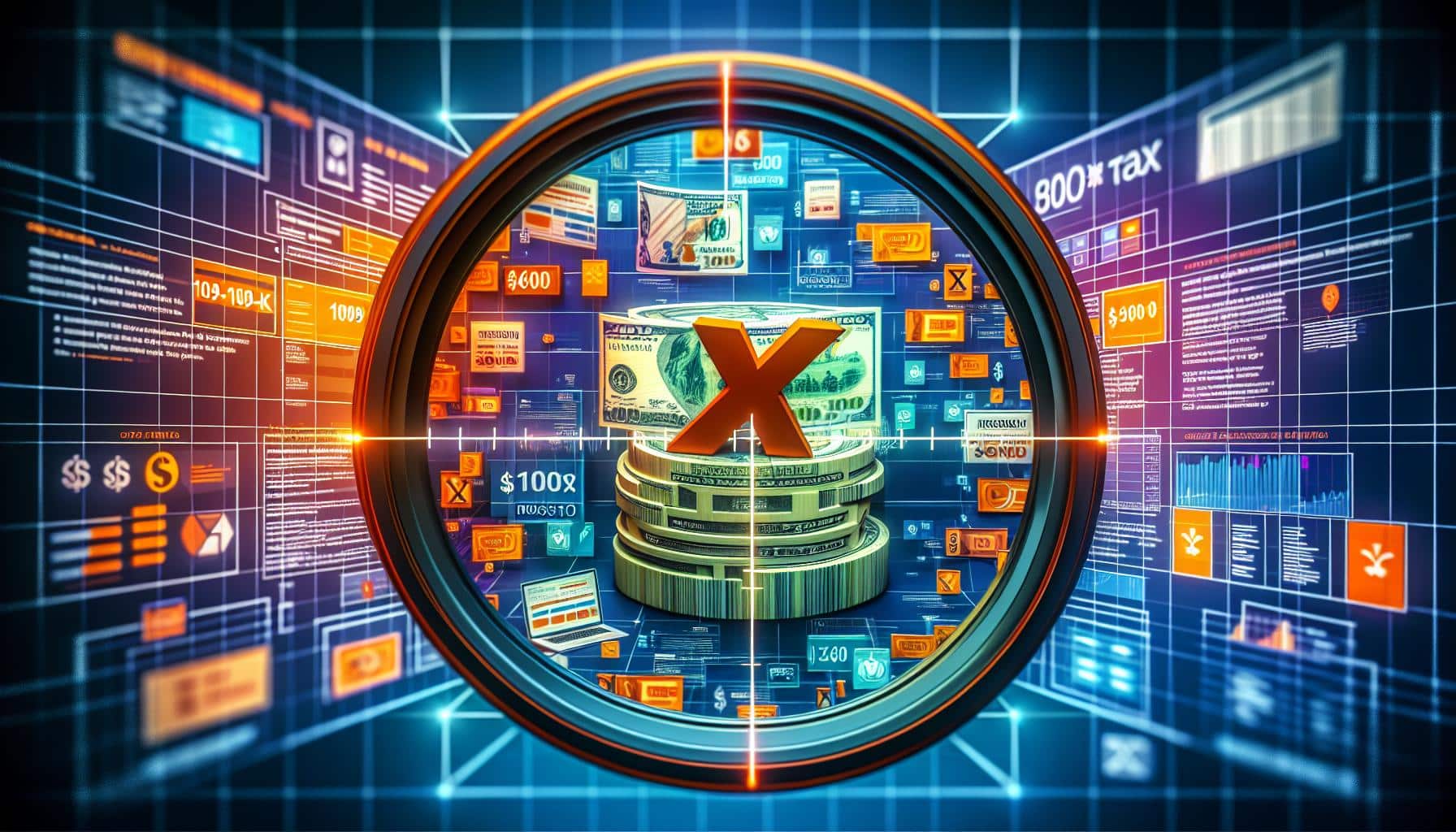Introduction to the IRS’s 1099-K Reporting Change
The IRS’s 1099-K reporting change has encountered some obstacles, leaving freelancers with numerous uncertainties. Originally set to take effect in 2022, the implementation of the new reporting rule has been repeatedly postponed. This delay gives payment platforms, such as PayPal and Venmo, more time to prepare for the complexities of distinguishing between taxable and nontaxable transactions. In this article, we will explore the details of this reporting change, its implications for freelancers, and what to expect when filing taxes in 2023.
Understanding the IRS $600 Payment Rule
To comprehend the implications of the IRS’s reporting requirements, it is crucial to understand the $600 payment rule. Third-party payment apps will eventually be required to report earnings over $600 to the IRS, as per the new reporting requirements introduced in the American Rescue Plan. The IRS is planning a phased rollout for the 2024 tax year, with payment apps being required to report earnings over $5,000 instead of $600. The threshold is being raised to reduce inaccuracies and allow more time for compliance.
Previously, third-party apps only sent 1099-K forms to users who received $20,000 in commercial payments across more than 200 transactions. With the new reporting requirements, payment apps will play a crucial role in ensuring that transactions often left unreported are properly documented and taxed. As a freelancer or business owner, it is essential to be aware of these changes and ensure you are paying taxes on your total income.
The Impact of the IRS 1099-K Change on the 2023 Tax Return
The IRS has paused the reporting requirement for 2023. Freelancers who earn income through third-party payment apps will need to report their earnings as usual when filing their taxes this year. However, they will not receive a 1099-K form from these apps unless they receive over $20,000 in payments across over 200 transactions in 2023. It is important to note that even if freelancers do not receive a tax form from a client, they are still responsible for reporting all self-employment income.
Instead of a 1099-K form, freelancers may receive 1099-NEC forms from businesses they work with. It is crucial to remain diligent in reporting all self-employment income, even without specific tax forms. Understanding the impact of the IRS 1099-K change on the 2023 tax return is important for freelancers to fulfill their tax obligations while avoiding any penalties or discrepancies.
What to Expect for the 2024 Tax Return
For the 2024 tax year, freelancers who earn more than $5,000 from a freelance client or side hustle through third-party payment apps will receive a 1099-K tax form. This will impact the taxes they file in 2025. However, the IRS may potentially delay or alter this rule, so freelancers should stay updated on any changes.
The inclusion of popular payment apps like PayPal, Venmo, Zelle, and Cash App in this reporting change means that freelancers need to be proactive in managing their transactions. Setting up separate accounts for professional transactions can help avoid any inclusion of nontaxable charges on the 1099-K form. It is important to understand the potential tax implications related to earnings received through these apps and be prepared for the reporting requirements.
Debunking Myths: Will the IRS Tax Money Sent to Family or Friends?
There have been rumors suggesting that the IRS is cracking down on money sent to family and friends through third-party payment apps. However, this is not true. Personal transactions involving gifts, favors, or reimbursements are not considered taxable. It is crucial to understand the distinction between taxable and nontaxable transactions to accurately report income and avoid unnecessary tax burdens.
Money received from family members as gifts for holidays or birthdays, money received from friends for shared expenses, and payments from roommates or partners for rent or utilities are considered nontaxable transactions. By properly classifying each transaction, freelancers can ensure that their tax forms accurately represent their taxable income.
Understanding Tax Obligations for Online Sales through Third-Party Apps
The reporting change also raises questions about tax obligations for online sales made through third-party apps, such as Facebook Marketplace. If personal items are sold at a loss, there is no tax obligation. However, if individuals engage in a side hustle where they buy and resell items for profit through platforms like PayPal, earnings over $5,000 will be considered taxable and reported to the IRS.
Tracking purchases and online transactions is crucial to determine which income is taxable and which is not. By maintaining proper documentation, freelancers can ensure accurate reporting while avoiding unnecessary tax burdens. Seeking professional tax advice is recommended, especially in cases of uncertainty or complex tax situations.
Analyst comment
Positive news: The IRS’s 1099-K reporting change has been delayed again, giving payment platforms more time to prepare for the complexities of distinguishing between taxable and nontaxable transactions. This delay will provide freelancers with more certainty and time to understand and comply with the new reporting requirements.













